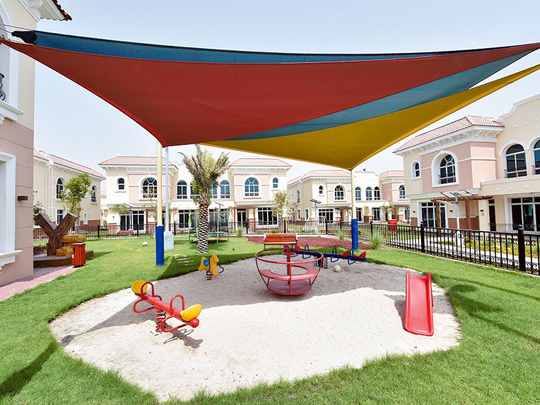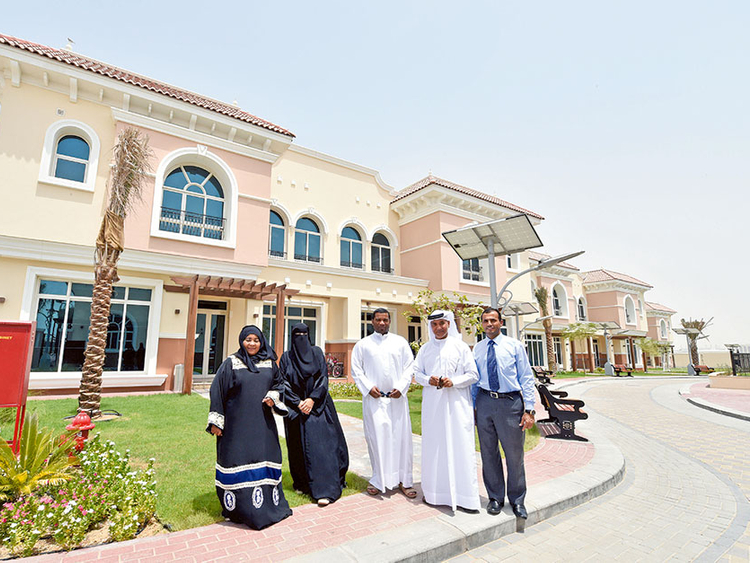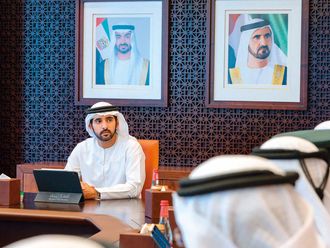
Dubai: A brand new orphanage is proving to be a home for 20 Emirati orphans who are starting to call their caregivers ‘mother’, ‘father’ and ‘auntie’.
And just like any child their age, they are getting the opportunity to attend school, pray, celebrate joyous occasions with other members of society or simply go out and have fun.
The Family Village, a project by Awqaf and Minors Affairs Foundation (Amaf), welcomed aboard children who were in search of an environment capable of providing love, care, safety and security — a place where they would feel accepted, free and part of the wider society.
Bringing them together in one big compound of 16 villas surrounded by lush greenery in Al Warqa’a 3, Amaf has vowed to do everything it takes to turn these children into productive members of society.
Amaf’s vision was explained by Tayeb Abdul Rahman Al Rais, its Secretary General, who took Gulf News on a tour of the village.
“Most societies in the world have neglected this group for long,” said Al Rais. “In turn, these children get attracted to negative pursuits like prostitution, drugs or terrorism because they feel like there’s nothing to lose.”
Initially, orphans — defined as minors who have lost their parents either by death or departure — were placed in Al Latifa Hospital and raised by nurses until they were adopted, said Al Rais. “Which was an issue because there was no organisation or structure and if they didn’t get adopted, they stayed there. A hospital is not a place for a child to be raised.”
With the Dh150 million sustainable project of the Family Village however, Amaf’s job to transform the lives of children is taking shape.
Initially, the idea of such a project gave rise to doubts “about the possibility of getting caregivers to spend most of their time with the children and to raise money to build this huge initiative,” said Al Rais. “But we were later surprised with the support that came in and the overwhelming numbers of Emirati women who wanted to give up so much of their days and nights to be with the children.”
This kind of volunteerism, said Al Rais, “is something new to our society, but it was possible. We also had to make sure [the volunteers] were Emirati and spoke the local dialect so that the children can grow up speaking it and can blend within the Emirati society.”
Now, ten Emirati women serving as ‘aunts’ and ‘mothers’, including two ‘fathers’ care for the teenage boys and serve as role models to them.
The shifts, Al Rais said, are split between the caregivers to give them time to spend with their own family as well. “The mothers and aunts come here in split shifts 3.5 days each and the fathers split weekly shifts,” he said. “They are so attached to the children and get really emotional when anything is said about someone coming in to adopt them,” he smiled.
The village opened its doors earlier this year to the caregivers who had completed a full training for three months. It was then inaugurated in June by His Highness Shaikh Mohammad Bin Rashid Al Maktoum, Vice-President and Prime Minister of the UAE and Ruler of Dubai.
Labelled as one of the very few sustainable orphanages in the Muslim world, Al Rais said this is what will guarantee “my children’s future.”
“It took us two years to raise Dh150 million, a budget we never expected to reach. Around Dh50 million went into building this place and Dh100 million went into the assets that support this village. That money will be used to build several buildings and the profits from these projects will generate funds for the kids, which means my all my kid’s lives are guaranteed.”
Al Rais pointed out how 99 per cent of orphanages are not sustainable and rely heavily on donations, and zakat to sustain themselves, which can be tough.
“We don’t turn down people or gifts, but we don’t actively pursue bringing zakat because we are not a charity organisation. We are an asset management foundation running over Dh2.5 billion in assets and looking after 2,564 other kids. We serve as their social guardian.”
He however confirmed that many donations came in from the government, businessmen and employees who had their monthly salary deducted for charity.













